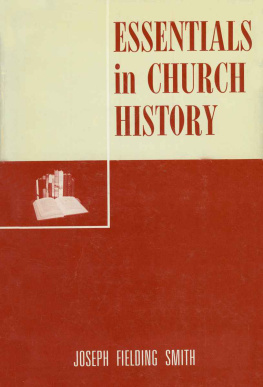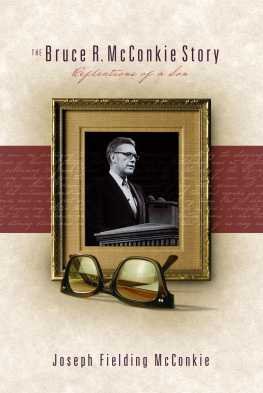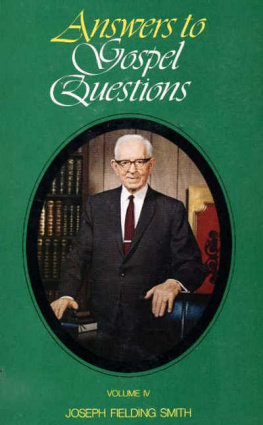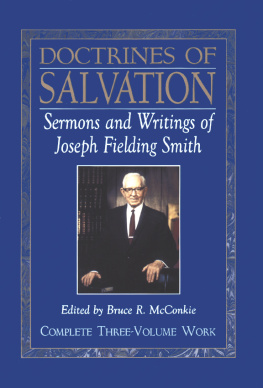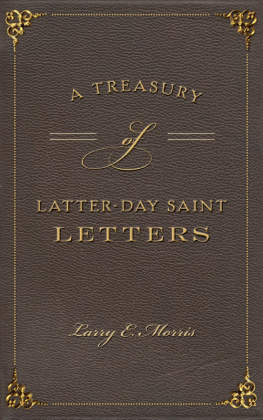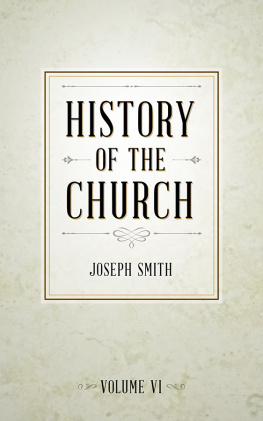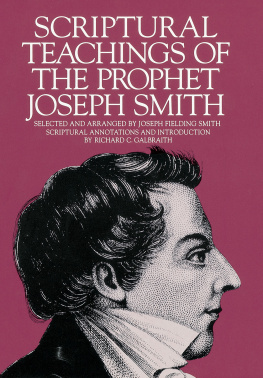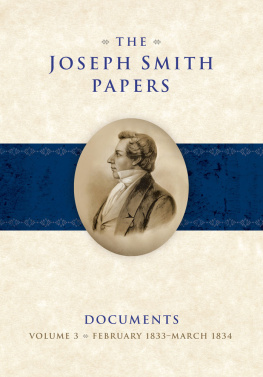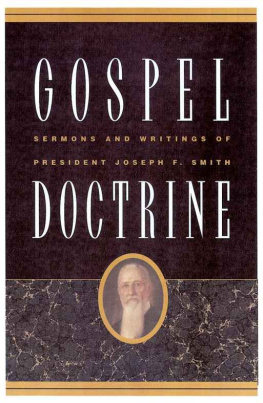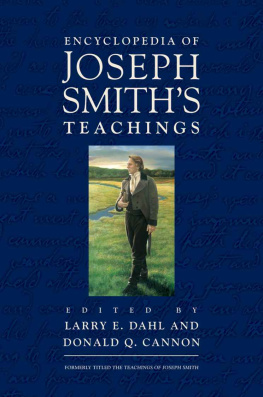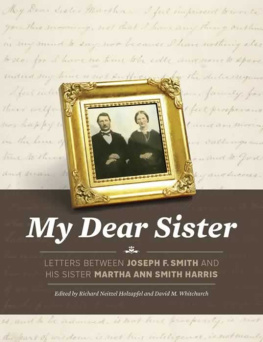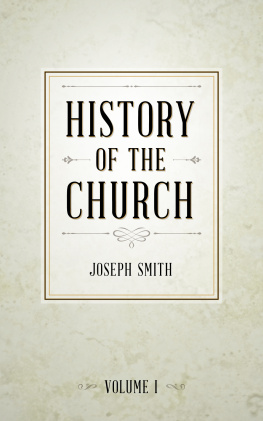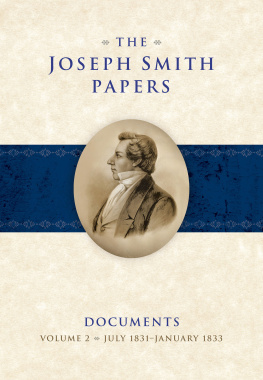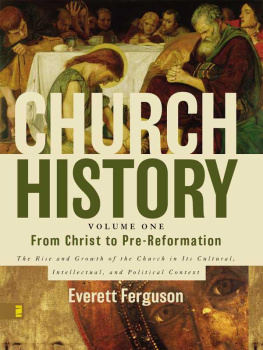Essentials in Church History
Joseph Fielding Smith
1950 George Albert Smith.
All rights reserved. No part of this book may be reproduced in any form or by any means without permission in writing from the publisher, Deseret Book Company, P.O. Box 30178, Salt Lake City Utah 84130. This work is not an official publication of The Church of Jesus Christ of Latter-day Saints. The views expressed herein are the responsibility of the author and do not necessarily represent the position of the Church or of Deseret Book. Deseret Book is a registered trademark of Deseret Book Company.
Preface
The need of a history of the Church in one volume that can be used for general reading, and at the same time meet the requirements of a textbook in the priesthood quorums, Church schools and auxiliary organizations, for a long time has been recognized. In the preparation of this volume, all these requirements have been given thoughtful consideration. As the title of the book, Essentials in Church History, implies, the vital and essential points of history and doctrine have been selected, and as far as possible, arranged in chronological order. The doctrines and revelations given to the Prophet Joseph Smith have been interwoven with the main story of the history in a manner, it is hoped, that will prove to be both interesting and instructive to the casual reader, as well as to the careful student. Moreover, the work has been prepared with the desire that the arrangement of the material will stimulate in the reader a zeal for further research and study of other and more extensive histories, particularly the Documentary History of the Church, in six volumes, which covers the period of the life of the Prophet Joseph Smith.
It is impossible to give, in one volume, in detail, all the important incidents in the history of the Church. However, this volume is sent forth on its mission with the hope that it will answer fully the purpose for which it was written.
Grateful appreciation is hereby acknowledged for invaluable assistance given by Dr. John A. Widtsoe, of the Council of the Twelve, in the preparation of the manuscript. I also desire to express sincere thanks to Elders Edward H. Anderson, J. M. Sjodahl, Andrew Jenson August William Lund and others, who have so willingly and cheerfully assisted in the preparation of the work.
JOSEPH FIELDING SMITH
PART ONE
Introductory: The Gospel in Ancient and Mediaeval Times
CHAPTER 1
Antiquity of the Gospel
The Gospel Older than the Law.From the time of the exodus from Egypt until the advent of Jesus Christ the Israelites were subject to the laws given to Moses. The belief is held by many that when the Savior supplanted these laws with the Gospel it was the first appearance among men of that great plan of salvation. The Gospel is much older than the law of Moses; it existed before the foundation of the world. Its principles are eternal, and were made known to the spirits of men in that antemortal day when Jesus Christ was chosen to be the "Lamb slain from the foundation of the world." All necessary preparations were made in the spirit life for the peopling of this earth in a mortal existence. It was there decided that Adam should come to this earth and stand as the progenitor of the race.
The Fall of Man and His Redemption.That Adam and his posterity might gain the experience that can only be obtained in mortality, it was necessary that he should break the law by which he was governed in the Garden of Eden, and thereby subject himself and his posterity to death. To gain an exaltation man must have experience and must exercise his free will. Then, knowing both good and evil, by obeying the will of the Father he will receive a reward for the good deeds done while in the flesh. The fall of man brought temptation, sin and death. It was therefore essential that a Redeemer be provided through whose atonement for the fall, all men, without regard to their belief, race, or color, are entitled to come forth in the resurrection of the dead, to be judged according to their works. "For since by man came death, by man came also the resurrection of the dead. For as in Adam all die, even so in Christ shall all be made alive" (1 Cor. 15:21-22).
Individual Salvation Taught to Adam.Individual salvation requires that a man must repent and accept the fulness of the Gospel if he would be exalted in the kingdom of God. This plan of salvation was taught to Adam after his expulsion from the Garden of Eden. He was baptized in water for the remission of his sins, in the name of the only Begotten of the Father, and received the Holy Ghost. He and his wife, Eve, were commanded to teach their children the Gospel, that they also "might be sanctified from all sin, and enjoy the words of eternal life in this world, and eternal life in the world to come, even immortal glory" (Moses ch. 6).
In obedience to this commandment Adam and Eve made all these things known to their sons and daughters. Thus the Gospel was taught in the beginning and was declared from generation to generation. Adam received the Holy Priesthood, which was also conferred upon the patriarchs who followed after him. They were "preachers of righteousness, and spake and prophesied, and called upon all men, everywhere, to repent, and faith was taught unto the children of men" (Moses 6:23).
The Gospel Rejected in Days of Noah.In the days of Noah the Gospel was universally rejected, save by Noah and his immediate familyin all eight souls. Noah had labored diligently and long to bring mankind to repentance, but without avail, "for all flesh had corrupted his way upon the earth" (Moses 8:29). After the destruction of the wicked in the flood, the Gospel continued to be taught by Noah and the later patriarchs, but quite generally it was not received. Melchizedek, king of Salem, through his faithfulness, became a great high priest, and the people of the Church in his day honored him by calling the "Holy Priesthood after the order of the Son of God," by his name, "out of respect or reverence to the name of the Supreme Being" (Doc. and Cov. 107:4). From Melchizedek, Abraham received the Priesthood, and to Melchizedek, as the properly authorized servant of the Lord, Abraham paid tithes of all he possessed (Gen. 14:20).
The Covenant with Abraham.Unto Abraham also was the Gospel preached and the Lord made covenant with him that through him and his posterity should all nations of the earth be blessed (Gen. 22:18). This same Gospel was also declared to the children of Israel in its simple truth; but they proved unworthy to receive it in its fulness, due to their long sojourn in Egypt, where they had partaken of the customs, traditions and theology of the Egyptians, and therefore "the word preached did not profit them, not being mixed with faith in them that heard it" (Heb. 4:2). The Lord endeavored to establish the fulness of his Gospel and authority among them, which Moses plainly taught, and he sought to sanctify the people, "that they might behold the face of God; but they hardened their hearts and could not endure his presence, therefore the Lord in his wrath (for his anger was kindled against them) swore that they should not enter into his rest while in the wilderness, which rest is the fulness of his glory" (Doc. and Cov. 84:23-24).
The Higher Priesthood and the Carnal Law.It became necessary, therefore, for the Lord to take Moses and the Higher Priesthood out of their midst, but the Lesser Priesthood, which holds the keys of the ministering of angels and the preparatory Gospelfaith, repentance and baptism for the remission of sinshe permitted to remain. To this he added the carnal law, known as the law of Moses, which was added, so Paul informs us, as a schoolmaster to prepare them to receive the fulness of the Gospel when restored by Jesus Christ.

